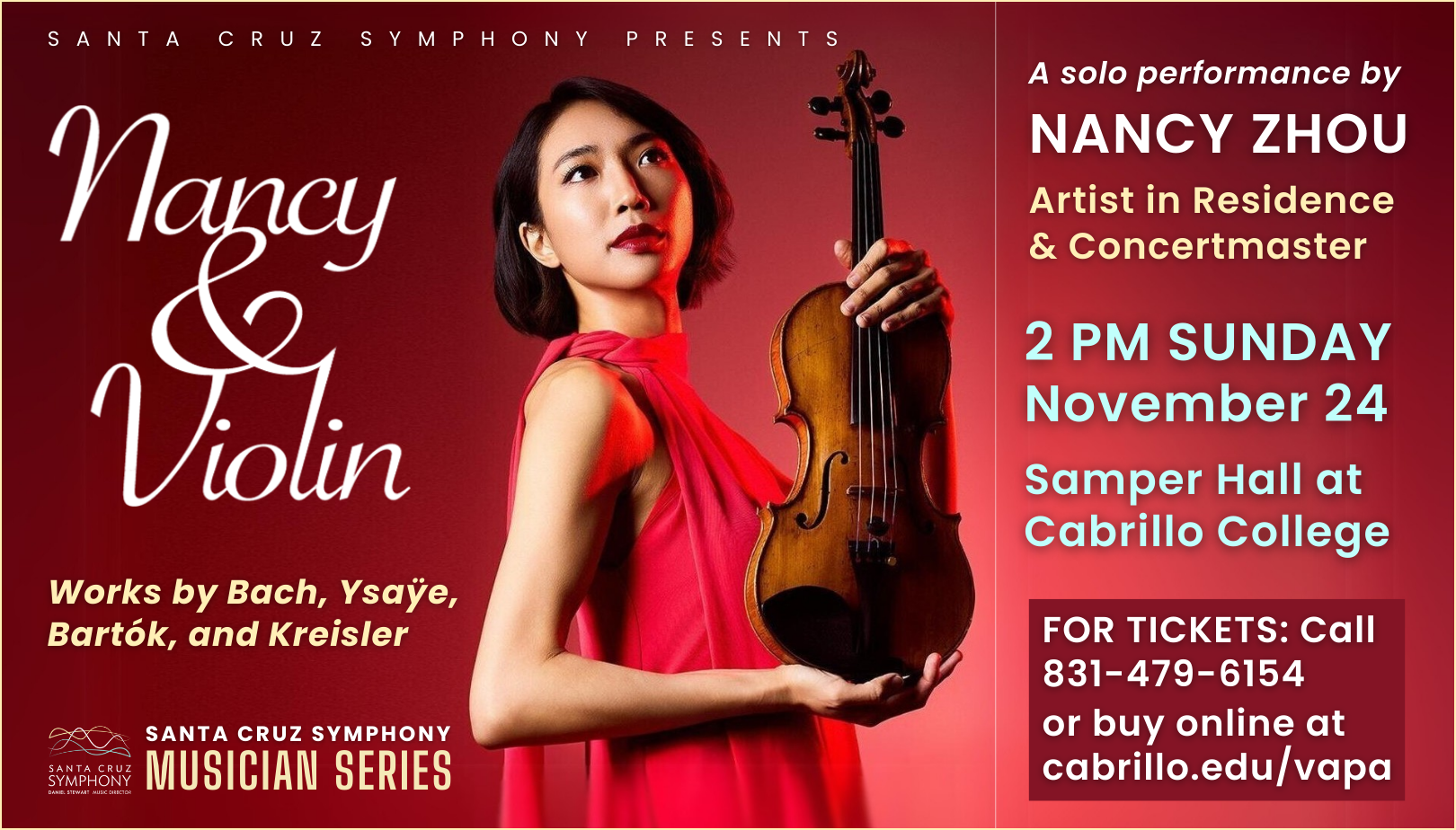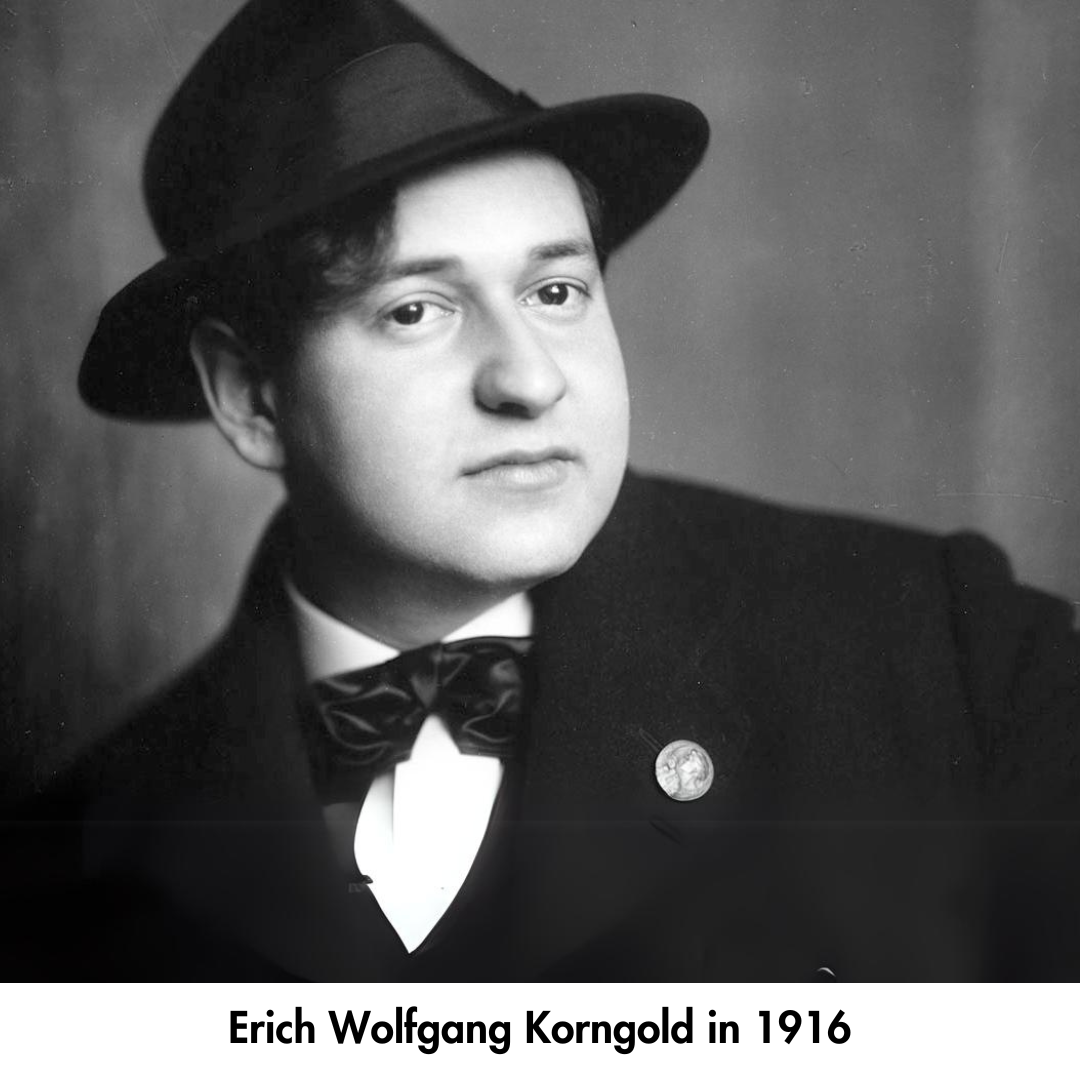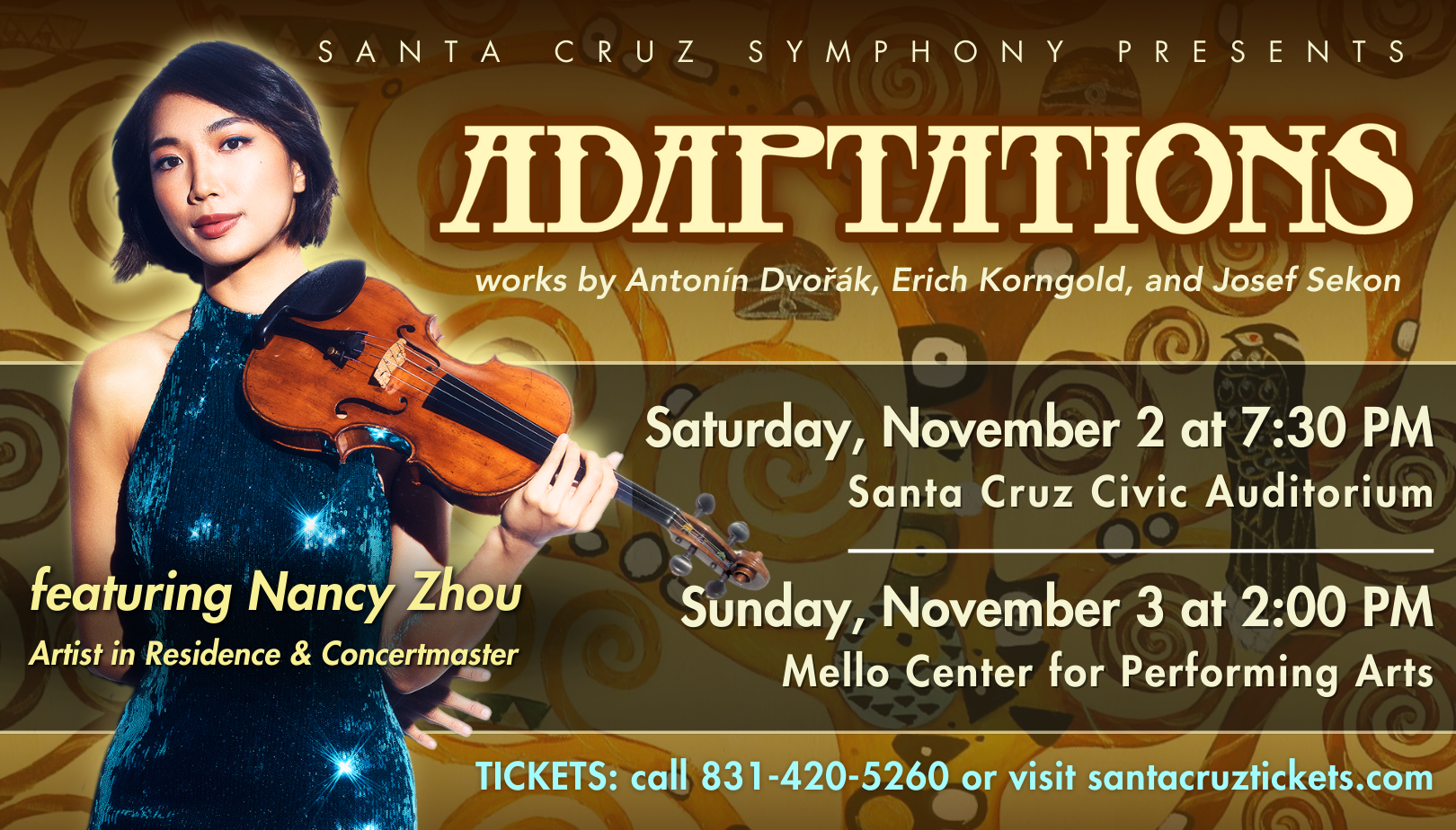Have you ever heard angels playing violins? Well, neither have we. But we can bring you pretty darn close to that experience! Nancy Zhou, our sublimely talented Artist in Residence and Concertmaster, will raise your spirits with a solo performance at 2:00 PM on Sunday, November 24, at Cabrillo College's Samper Hall.
Our Symphony audiences were blown away by Artist in Residence and Concertmaster Nancy Zhou's stunning violin performance in our recent Adaptations concerts. Here's what they had to say:
"Over the moon. Nancy’s artistry and mastery of the violin is spellbinding!!!"
"Off the charts amazing!!!"
"Nancy was wonderful. Such perfection!"
"The soloist's performance was remarkable."
"Nancy is brilliant. I felt like I was listening to genius."
This Musician Series event will be a performance like no other. Nancy will entice from her violin the same melodies created by some of the world’s greatest composers, bringing them to life again. These include J.S. Bach’s Partita no. 1, Eugène Ysaÿe’s Sonata no. 4, Béla Bartók’s Solo Sonata, and Fritz Kreisler’s Recitativo and Scherzo.
Nancy is renowned for her virtuosity, having collaborated with the Royal Stockholm Philharmonic Orchestra, Finnish Radio Symphony, St. Petersburg Philharmonic, Munich Symphony, Shanghai Symphony Orchestra, Kansas City Symphony, San Diego Symphony, Padua Chamber Orchestra, and many more. With this intimate performance, that world famous talent will be presented for you and a very special audience.
These programs fill up quickly! Secure your seats today for a memorable afternoon filled with artistry and inspiration.
WHEN: Sunday, November 24 at 2 PM
WHERE: Samper Recital Hall at Cabrillo College
TICKETS: Call Cabrillo Box Office at 831-479-6154 or click here to buy tickets online. Save money by buying a ticket package!















